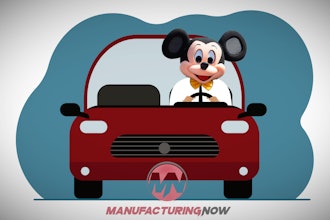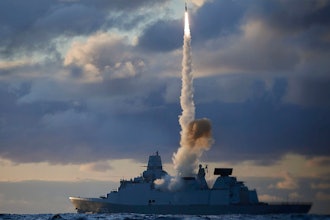Discrete manufacturers need to make operations and supply chains that enable customer satisfaction as lean and cost-effective as possible, as well as find ways to complement the focus on complexity reduction with an improved ability to manage operational efficiency.
"Reduce cost (45 percent), improve overall customer experience (36 percent), improve customer response time (27 percent), manage growth expectations (28 percent) and inter-operability issues across multiple operating locations (19 percent)" were the Top Business Driver in the Manufacturing Industry. (Source: ERP in the Complex Manufacturing -- March 2011, by Aberdeen Research, percentage of Respondents, n= 127).
Whether it is a weak, recovering, or strong economy, the fundamental strategies for surviving and thriving remain the same for discrete manufacturing organizations. Many manufacturers desire to boost revenue through new customer acquisition, new sources of demand from overseas, or through new tactics such as aligning innovation with business strategy, inventory optimization, intelligent supply chains, or technology gains within their business. Combined with these 'strategies,' today's manufacturer is getting squeezed by the effects of an increasingly tough global competitive environment, globalization, product proliferation, and elongated supply chains which have conspired to create ever-increasing complexity, not to mention strong downward pressure on pricing and rising input costs.
Increasing complexity has led to great concern and is becoming a heightened issue as customers become more demanding; particularly in the automotive, metal fabrication, industrial machinery and equipment, and high-tech electronics industries.
Today the discrete manufacturer has to be flexible enough to meet customer satisfaction demands, but still be able to do so profitably; on the other hand, they need to have the capability to embrace and manage increased complexity while remaining agile in order to stay competitive. They need to make operations and supply chains that enable customer satisfaction as lean and cost-effective as possible, as well as find ways to complement the focus on complexity reduction with an improved ability to manage operational efficiency.
Most discrete manufacturers have difficulty accessing critical data and battle low visibility into how well their business, their market and their competitors are responding to today's challenges; as data pours in from multiple systems, divisions and regions.
Today's Successful Manufacturer Leverages Best Practices
"Streamlining and accelerating processes to improve efficiency and productivity (80 percent), standardizing business processes (64 percent), visibility to business processes across functions and departments (38 percent), optimizing the use of current capacity (38 percent) and integrating disparate ERP (24 percent)" were the Top ERP Strategies for Best-In-Class Complex Manufacturers. (Source: ERP in the Complex Manufacturing -- March 2011, by Aberdeen Research, percentage of Respondents, n= 127).
IT departments are challenged to provide solutions that enable productivity and agility to face the market and consumer demands. Manual processes, inefficiencies, and a lack of accountability add to the mix. Improved IT infrastructure becomes a key component in facilitating better decision-making, profitability, customer satisfaction, and efficiency of their operations. Moreover, the discrete manufacturer has a unique character with versatile operations making it difficult to introduce any applications, especially when operations are spread among different countries. Different requirements across regions such as trade practices, statutory regulations, and commercial requirements differ greatly from one country to the other. This in itself requires a large undertaking and preparation of a framework to support implementation of an end-to-end business solution. IT deployments need to consider both industry and country specific requirements.
Most consider investing in IT systems that can streamline and automate processes wherever possible, adjust easily to change, and extract valuable real-time business intelligence from all the data business applications generated. Leading discrete manufacturers are taking advantage of applications such as Enterprise Resource Planning (ERP), business intelligence and analytics, manufacturing execution systems (MES), financial budgeting and forecasting applications and CRM for their businesses. However, they find it difficult to measure the benefit and Return on Investment (ROI) of these applications. The perceived benefits are also not commonly understood within the industry or even among C-level executives in the same organization. Instead, they need IT investments that will help them re-engineer decision-making processes, allowing management insight into the business to make accurate decisions and prompt actions to the opportunities.
ERP has been the watchword of discrete manufacturers' right from inception. ERP concepts have helped remove historic challenges by merging common functions in the database and feeding the results of different applications in a familiar form that is easy to understand. They have significantly contributed to the growth, welfare and dynamism in the manufacturing sector. We continue to see positive trending towards manufacturers who evolve their ERP applications to better support their business needs are poised to show better results and gain competitive advantage.
Overall, it is believed that the best way to overcome today's challenges is by learning from best practice and sector-specific experts, and then on this basis, investing in efficient business process and technology. A combined approach of internal skills and training, and external consulting and technology investment is key to addressing the ongoing challenge of complexity. It is also important to note that any significant 10-to-15-year technology investment made today must be selected with the idea that complexity will increase over time. As a result, solutions must be adaptable. In this context, services and technology providers should play an important role in assisting the manufacturer better understand the relationship between investments in IT and return on IT investment through the services they offer.
Tectura is a worldwide provider of business consulting services delivering exceptional service and sustainable value through consulting, software and IT implementation. Visit www.sg.tectura.com to learn more.






















